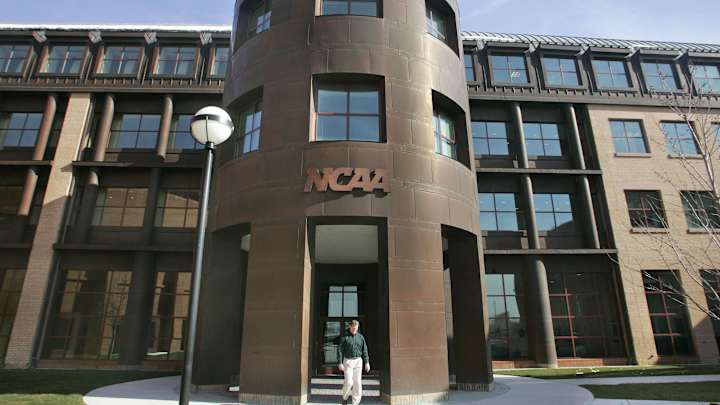Athletes Ask NCAA Not to Host Events in Idaho Due to State's Transgender Girls and Women's Sports Ban

A large coalition of advocacy groups and athletes—including the likes of former tennis great Billie Jean King, soccer star Megan Rapinoe and basketball players Sue Bird and Reggie Bullock—sent letters Wednesday to the NCAA asking that the state of Idaho be barred from hosting NCAA-sponsored events while a law limiting female transgender and intersex sports participation is on the books.
The letters, obtained by Sports Illustrated, specifically target 2021 NCAA men’s basketball tournament games that are scheduled to be played March 18–20 at ExtraMile Arena in Boise. Citing House Bill 500, which was signed into law March 30, the letters state: “Given Idaho’s adoption of a discriminatory law that directly impacts college athletics, violates NCAA values, and undermines the dignity and well-being of NCAA athletes, Idaho schools no longer qualify to host NCAA events.”
"The letters are signed by more than 400 athletes—both professional and collegiate—and more than 60 organizations."
“Transgender athletes deserve the same dignity and respect entitled to all NCAA athletes,” said Rodrigo Heng-Lehtinen, deputy executive director for Policy and Action with the National Center for Transgender Equality. “Because of HB 500, that simply isn’t possible in Idaho. We applaud the NCAA for speaking out against HB 500 and now encourage them to back up their words with action.”
HB 500, also known in Idaho as the Fairness in Women's Sports Act, says, "athletic teams or sports designated for females, women, or girls shall not be open to students of the male sex." That law, which is the first of its kind in the country and allows for girls and women to have their genitals checked if their biological sex is challenged, has spawned opposition and criticism from advocacy groups nationwide.
“The National Women’s Law Center works every day to fight for gender justice. That’s why we are proud to stand with our transgender sisters in opposition to laws like HB500,” said Neena Chaudhry, General Counsel and Senior Advisor for Education. “Athletics are a space where everyone should be welcome, regardless of their gender or gender identity. The NCAA should make it clear that anti-transgender discrimination has no place in sports.”
There is precedent for the NCAA moving events out of states that pass legislation that the association says runs counter to its values. The NCAA moved seven championship events out of the state of North Carolina for the 2016–17 season after that state passed HB 2, the so-called “Bathroom Bill,” because it removed anti-discriminatory protections for lesbian, gay, bisexual and transgender people—most notably banning people from using public bathrooms that don't correspond to their biological sex as listed on their birth certificates.
That led to a wide-ranging boycott of North Carolina by sports leagues, entertainers and others that had events scheduled in the state. Among the events that were relocated: the 2017 NCAA men’s basketball tourney games scheduled for Greensboro, which were moved to Greenville, S.C. North Carolina also missed out on NCAA championships in soccer, golf, tennis, lacrosse and baseball that year.
North Carolina modified the bill slightly in 2017 and the NCAA “reluctantly” went back to scheduling championships in the state.
Pressure from prominent athletes and organizations might be more important in the case of Idaho, which hosts few major sporting events. In the case of North Carolina, the NCAA was following the lead of the NBA, which pulled its All-Star Game out of Charlotte.

Pat Forde is a senior writer for Sports Illustrated who covers college football and college basketball as well as the Olympics and horse racing. He cohosts the College Football Enquirer podcast and is a football analyst on the Big Ten Network. He previously worked for Yahoo Sports, ESPN and The (Louisville) Courier-Journal. Forde has won 28 Associated Press Sports Editors writing contest awards, has been published three times in the Best American Sports Writing book series, and was nominated for the 1990 Pulitzer Prize. A past president of the U.S. Basketball Writers Association and member of the Football Writers Association of America, he lives in Louisville with his wife. They have three children, all of whom were collegiate swimmers.
Follow ByPatForde